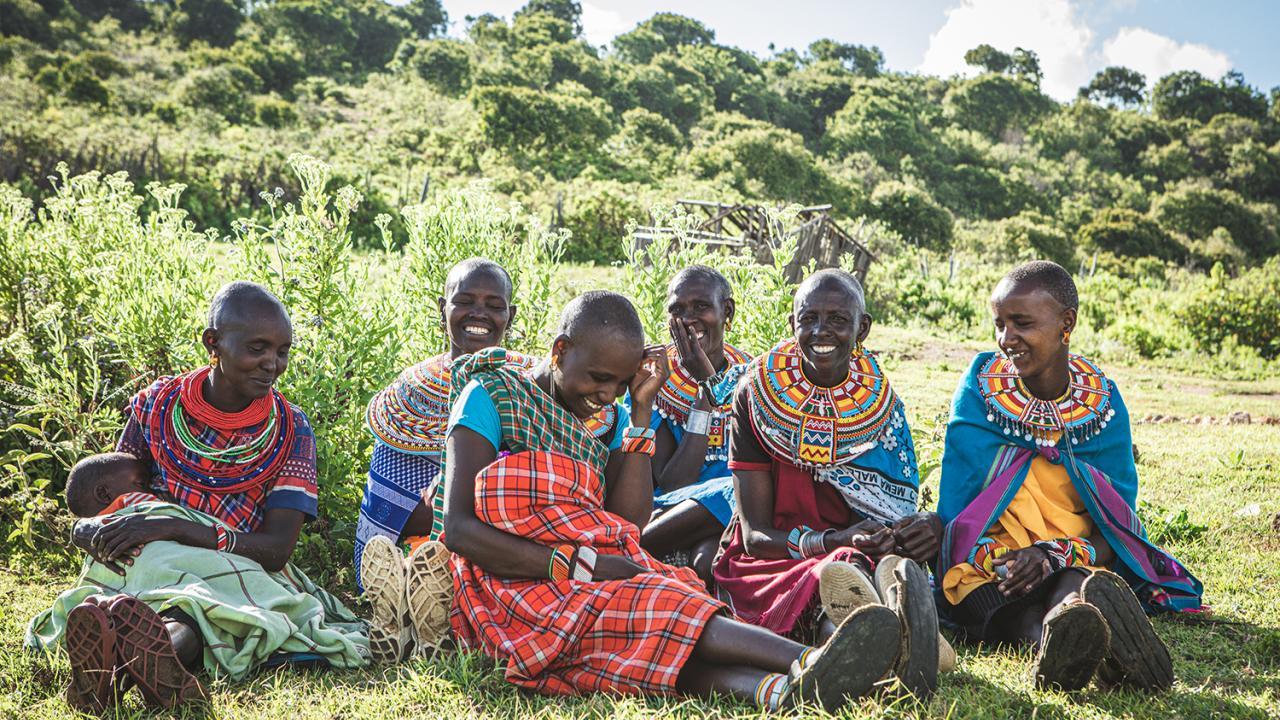
Big Financial Impacts for a Poverty Graduation Program for Women in Northern Kenya
A prominent poverty graduation program for women in rural northern Kenya has had big financial impacts, according to new results from an ongoing study led from UC Davis.
The USAID-supported impact evaluation has found that The BOMA Project’s Rural Entrepreneur Assess Project (REAP) in Samburu County, Kenya significantly increased business assets, income and savings for most participants with additional benefits for nearby women who did not take part in the program. These results were reported at a Washington, D.C. event on April 21, 2022 at the National Press Club.
“On average, women who participated in REAP generated a lot of income and savings while preserving the value of their initial asset grant,” said Michael Carter, director of the Feed the Future Innovation Lab for Markets, Risk & Resilience and the study’s principal investigator. “We also found variation in psychological assets, such as levels of depression, that appear to drive who benefits from the program.”
Increased Assets, Income and Savings
Since 2018, Carter has led the impact evaluation on REAP, The BOMA Project’s flagship program, which provides training, mentorship and asset grants to small groups of women to start businesses. Targeted at the poorest women in communities across Samburu County, REAP sets out to build tangible material assets as well as intangible psychological assets, such as the self-confidence to succeed.
The study found that REAP participants who had just completed the 24-month program had, on average, 324% more in business assets, 32% more in total annual household cash income and 509% more in cash savings than non-participants in communities where no REAP programming took place.
Those benefits generated a total return-on-investment (ROI), also called a benefit-cost ratio, of 3.1, meaning that every $1 invested in REAP delivers about $3 in benefits to communities in Samburu. This ROI was driven in part by spillovers from REAP participants to women in their communities who were eligible for REAP but who were not offered to join.
Carter has also found evidence that these benefits come in part from how REAP changed participants’ desire for economic advancement.
“When you lift constraints that hold people back in life, what people want also seems to change,” said Carter.
Depression Blunts the Benefits of Programming
Carter and his team found that women’s levels of depression going into REAP determined whether they would benefit from the program. Women experiencing severe depression, which was roughly 30 percent of all women in the study, had almost no benefit from participating in the program.
Sam Owilly, chief scaling officer for The BOMA Project, said that these high levels of depression are representative of the substantial shocks and stresses women in the region face in their daily lives. These include an increased likelihood of drought caused by climate change as well as the impacts of the COVID-19 pandemic and even geopolitical dynamics like the war in Ukraine.
“I think the correlation between economic viability and psychological wellbeing is actually the groundbreaking outcome of this experiment,” said Owilly. “We’re going to be a bit more intentional in factoring in psychological and mental health in terms of targeting.”
Strengthening Programming for Women in Africa’s Drylands
The BOMA Project was founded to tackle the challenges of extreme poverty and finding scalable, sustainable and data-driven solutions to address multi-dimensional nature of extreme poverty in the drylands of Africa.
“The BOMA Project’s approach is a uniquely adapted model that tackles the challenges specifically suited to the context of the drylands of Africa, especially for women and girls in highly patriarchal societies in pastoralist, rural Kenya,” said Jaya Tiwari, vice president of The BOMA Project.
These results are from the study’s midline survey taken in 2020. Carter and his team have just completed data collection for the final (endline) survey. Their analysis of the full impacts of REAP will include the addition of Index-based Livestock Insurance (IBLI), which is designed to provide payments in the event of severe drought.
“We are happy with the findings from this study so far,” said Owilly. It’s going to inform how BOMA strategizes and builds on this program to take it to scale.
Carter reported a summary of these midline results in a policy brief co-authored with Geyi Zheng, a Ph.D. candidate in agricultural and resource economics at UC Davis, and Nathan Jensen, senior scientist and economist at the International Livestock Research Institute.
A full recording of the event is available: https://twitter.com/BOMAProject/status/1517119352079851525
This report is made possible by the generous support of the American people through the United States Agency for International Development (USAID) cooperative agreement 7200AA19LE00004. The contents are the responsibility of the Feed the Future Innovation Lab for Markets, Risk and Resilience and do not necessarily reflect the views of USAID or the United States Government.
This work was conducted as part of the CGIAR Research Program on Livestock and was supported by contributors to the CGIAR Trust Fund.
